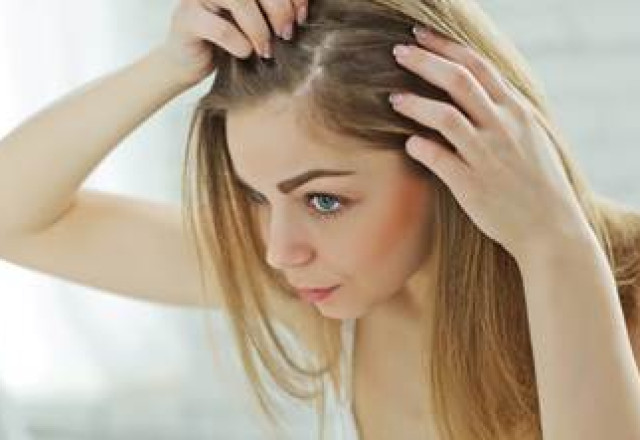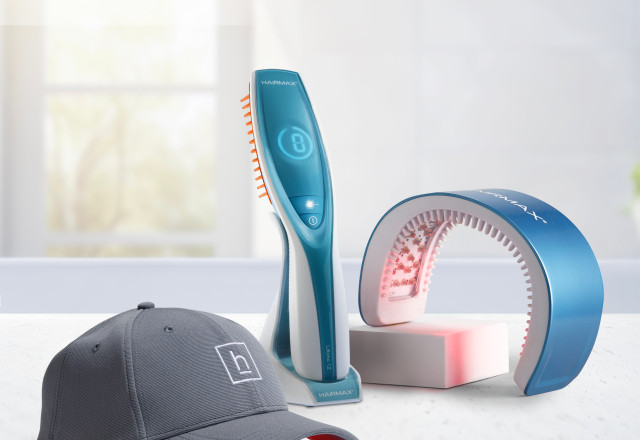Why Is My Hair Thinning? Causes & Solutions Explained
Discover the most common causes and explore effective solutions - from lifestyle changes to advanced laser therapy for hair regrowth.

BOCA RATON, Fla., June 3, 2025 (Newswire.com) - Nobody wants to look in the mirror and notice their hair is thinning.
Hair loss can take a serious toll on confidence, self-image, and emotional well-being. But here's the good news: today, there are more clinically backed treatments than ever before. From specialized shampoos and supplements to advanced laser technology, science is giving people real solutions for thinning hair.
Still, to effectively treat the problem, it's crucial to understand why it's happening. Hair thinning isn't always caused by the same issue, and different root causes require different approaches. In this article, we'll break down the most common causes of thinning hair and explore proven treatments that can help.
How Do You Know If Your Hair Is Thinning?
It's normal to shed 50-100 hairs a day. Hair thinning becomes noticeable when the rate of shedding outpaces new hair growth. This can show up as:
A receding hairline (especially at the temples)
A widening part or thinning at the crown
Overall reduction in hair volume
More visible scalp
In most cases, thinning occurs gradually. By the time it's visibly noticeable, nearly 50% of your hair density may already be lost.
Common Causes of Hair Thinning
Let's take a closer look at what might be behind your hair loss:
1. Androgenetic Alopecia (Genetic Hair Loss)
Also known as male or female pattern hair loss, this is the most common form of hair thinning. It's hereditary and can begin as early as your twenties. While men may experience a receding hairline or bald spots, women usually notice overall thinning or widening of the part.
2. Aging
Hair naturally thins with age. By age 50, roughly half of all men and women experience some degree of hair loss. As we age, the growth phase of the hair cycle shortens, and hair follicles may shrink or cease producing hair altogether.
3. Hormonal Changes
Hormonal fluctuations can disrupt the hair growth cycle. Pregnancy, menopause, postpartum recovery, thyroid imbalances, or stopping birth control can all trigger temporary or long-term hair thinning-especially in women.
4. Medical Conditions
Health issues like thyroid disorders, alopecia areata, lupus, or scalp infections (like ringworm) can lead to hair loss. In some cases, scarring scalp conditions may cause permanent damage to hair follicles.
5. Medications
Certain medications list hair loss as a side effect. Common culprits include treatments for cancer, high blood pressure, depression, arthritis, and heart disease.
6. Stress or Trauma
Significant emotional or physical stress-such as major weight loss, surgery, or the loss of a loved one-can shock the hair cycle, pushing more hairs into the shedding phase (telogen effluvium).
7. Lifestyle Factors
Poor nutrition, lack of sleep, smoking, pollution exposure, and excessive styling or heat damage can all contribute to weak, thinning hair. A nutrient-poor diet and chronic stress can silently sabotage healthy hair growth over time.
How to Reduce Hair Thinning
The first step in fighting hair loss is prevention. Here's what you can do to minimize further thinning:
Be gentle with your hair. Avoid tight hairstyles like ponytails or braids that strain the scalp. Limit the use of hot tools, chemical treatments, and harsh products.
Watch your habits. Constantly tugging, twisting, or rubbing your hair can cause breakage and stress to follicles.
Revamp your diet. Feed your follicles from within. Nutrient-rich foods like eggs, fatty fish, berries, nuts, and leafy greens support healthy hair growth.
Manage stress. Incorporate relaxation techniques like yoga, breathwork, or meditation to help reduce stress-induced shedding.
Solutions for Thinning Hair
There's no one-size-fits-all solution, but there are several treatment options backed by science. Each comes with its own advantages and limitations. Here's a look at the most popular choices:
1. Topical & Oral Treatments
These include over-the-counter or prescription options like minoxidil, finasteride (for men only), or supplements.
Pros:
Widely available and easy to use
Some are FDA-approved (e.g., minoxidil, finasteride)
Supplements may support overall hair and scalp health
Cons:
Results can take 3-6 months or longer
Continuous use required to maintain results
Potential side effects: scalp irritation (topicals), sexual dysfunction, dizziness, or mood changes (oral drugs)
Not suitable for everyone, especially pregnant women or those with certain health conditions
2. Low-Level Laser Therapy (LLLT)
Devices like Hairmax Laser Caps, Laser Bands, and Laser Combs use medical-grade lasers to stimulate hair follicles and promote regrowth through photobiostimulation.
Pros:
Clinically proven & FDA-cleared
Drug-free and non-invasive
No harmful side effects
Safe for long-term use in both men and women
Can be combined with other treatments for enhanced results
One-time investment for years of use
Cons:
Higher initial cost compared to topicals or supplements
Results may take 3-6 months depending on the severity of hair loss
Note: Hairmax laser devices boast a 93% success rate in clinical studies
3. Combination Approach
Many people find that combining treatments-like using laser therapy with hair care products and supplements - delivers the best results.
Pros:
Targets hair loss from multiple angles
Can accelerate and enhance visible results
Customizable based on your stage and type of hair loss
Cons:
May require more time, consistency, and financial commitment
Results vary by individual
Ready to Take the First Step?
Thinning hair can be a frustrating journey-but you're not alone, and there is hope. Visit www.hairmax.com and begin your journey toward fuller, healthier hair.
Thicker hair is possible. Confidence is reclaimable. Let Hairmax help you grow.
About Hairmax:
Founded in 2000, Hairmax is a global leader and pioneer in laser hair growth technology. The company revolutionized the hair restoration industry with the introduction of the first at-home laser phototherapy device cleared by the FDA for the treatment of hair loss and stimulation of hair growth.
Hairmax's commitment to innovation and clinical excellence is supported by 8 FDA clearances and 7 peer-reviewed clinical studies demonstrating a 93% success rate in hair growth. All Hairmax laser devices are drug-free, with no reported harmful side effects. The products are manufactured to the highest quality standards, holding ISO and CE certifications, GMP compliance, and 14 medical device licenses worldwide.
In addition to its laser devices, Hairmax offers a complete line of scientifically formulated hair care products and hair supplements, designed to support overall scalp health and target the multiple causes of thinning hair.
Media Contact:
Francesca Dubsky
fd@hairmax.com
www.hairmax.com
Ph: 561.314.2430 ext. 124
SOURCE: Hairmax International, LLC
Source: Hairmax International, LLC


